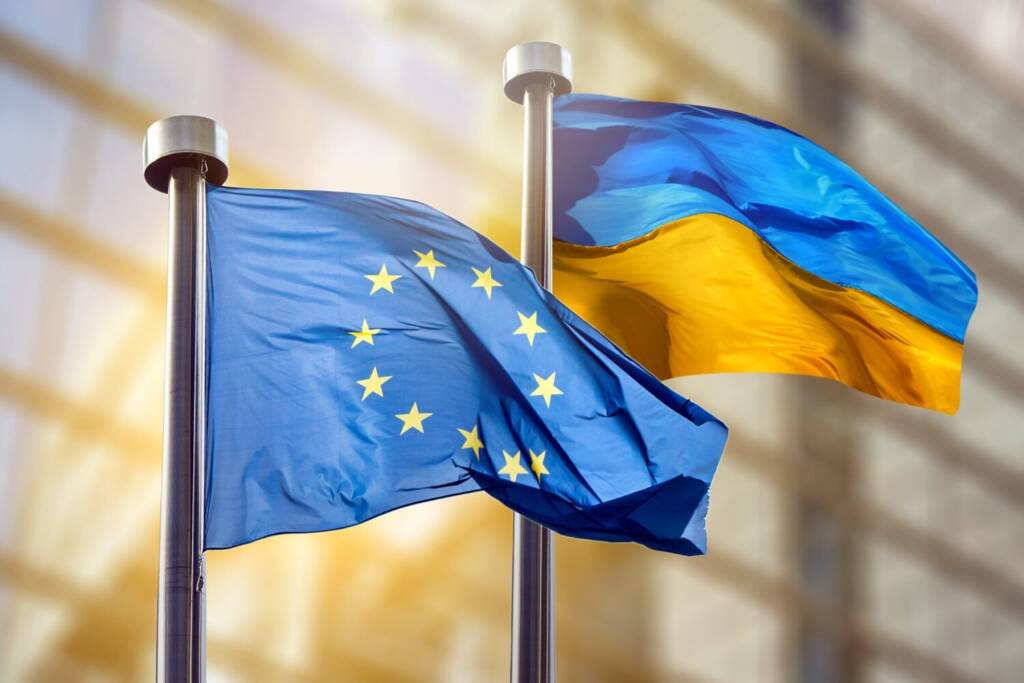Amid escalating financial and strategic tensions, the West’s approach to the Ukraine conflict has reached a critical threshold, challenging the cohesion of the EU and strategic independence.
The Western strategy for the Ukraine conflict has reached a pivotal point, with financial support now exceeding the Marshall Plan’s inflation-adjusted costs. With more than $200 billion spent, the burden of continued funding is evident. The European Union’s recent €50 billion package, amid internal resistance and growing war skepticism fueled by a cost-of-living crisis, highlights increasing concerns.
Join us on Telegram: https://t.me/tfiglobal
Moreover, the conflict has weakened Europe’s strategic stance, diminishing hopes for autonomy and deepening reliance on the United States, a dependency not seen since World War II. This situation has left Europe exposed, questioning the steadfast support for Ukraine amidst significant strategic and financial pressures.
European leaders’ rejection of diplomatic solutions, especially notable in French President Emmanuel Macron’s calls for more military support for Ukraine, showcases a disconnect from the strategic reality. The perceived threat from Russia appears exaggerated, raising doubts about the current approach.
Read More: Fico Cancels EU’s Favorite Office
The EU’s unwavering support for Ukraine reflects more than strategic interests; it indicates a deeper push towards a unified European identity, akin to a “United States of Europe.” This approach uses Ukraine’s situation to bolster EU sovereignty and integration, emphasizing political unity over immediate strategic needs. It showcases the EU’s attempt to create a collective identity, essential for its legitimacy, through shared values and narratives, despite the lack of a unified historical European “demos.” The effort to build a European superstate thus relies on fostering a new, abstract civic identity, a move away from traditional nationhood towards a community defined by liberal, cosmopolitan principles. This strategy represents a significant shift in the foundation of EU statecraft, aimed at overcoming the challenges of unifying a diverse continent under a single political and cultural umbrella.
The EU’s stance on the Ukraine-Russia conflict showcases its strategic framing of Ukraine as an emblem of “European values” like freedom and democracy, directly contrasting with Russia. This narrative, highlighting Ukraine as a beacon of moral authority, aligns with European ideals. The EU’s emphasis on victimhood, inspired by Nietzsche’s views on modernity and oppression, positions the defense of the oppressed as a key principle of statecraft, legitimizing the role of European elites as protectors and champions of these values.
The EU’s narrative around Ukraine serves as a cornerstone for a broad spectrum of policies aimed at cultivating a new, cosmopolitan European identity, strategically using Ukraine’s plight to underscore a commitment to universal values and social justice. This approach seeks to mold a unified European ethos, sidelining Russia while navigating the complexities of Europe’s varied historical identities. The envisioned European identity, fostering a transnational community, leverages the Ukrainian struggle as a mythic foundation for EU unity, redefining traditional concepts of nationhood towards a collective identity focused on overcoming oppression.
Read More: Borell Brings BAD NEWS again (To The EU)
This alignment with Ukraine, however, presents a conundrum for Europe. The EU’s staunch support is criticized as a misstep, driven by elite ambitions to cement a federal European state through top-down engineering of a collective identity. This ambitious project is seen as jeopardizing another critical goal: Europe’s quest for geopolitical autonomy, particularly from the influence of Washington. The narrative of a unified Western stance on Ukraine conceals the real dynamics of power within the US-led alliance, highlighting the paradox of striving for EU sovereignty while remaining under the US’s influence.
The EU’s commitment to centralizing power and pursuing political sovereignty, even at the cost of member states’ disenfranchisement, economic prosperity, and strategic independence, underscores a willingness among EU leaders to endure short-term subservience for a long-term vision of a sovereign European superstate. Ukraine’s role in this scenario is emblematic; while Ukrainians fight for their national sovereignty, they inadvertently support the broader ambitions of the EU’s elites, who see in Ukraine’s plight an opportunity to advance their vision of a unified European identity and centralize authority within the EU.
